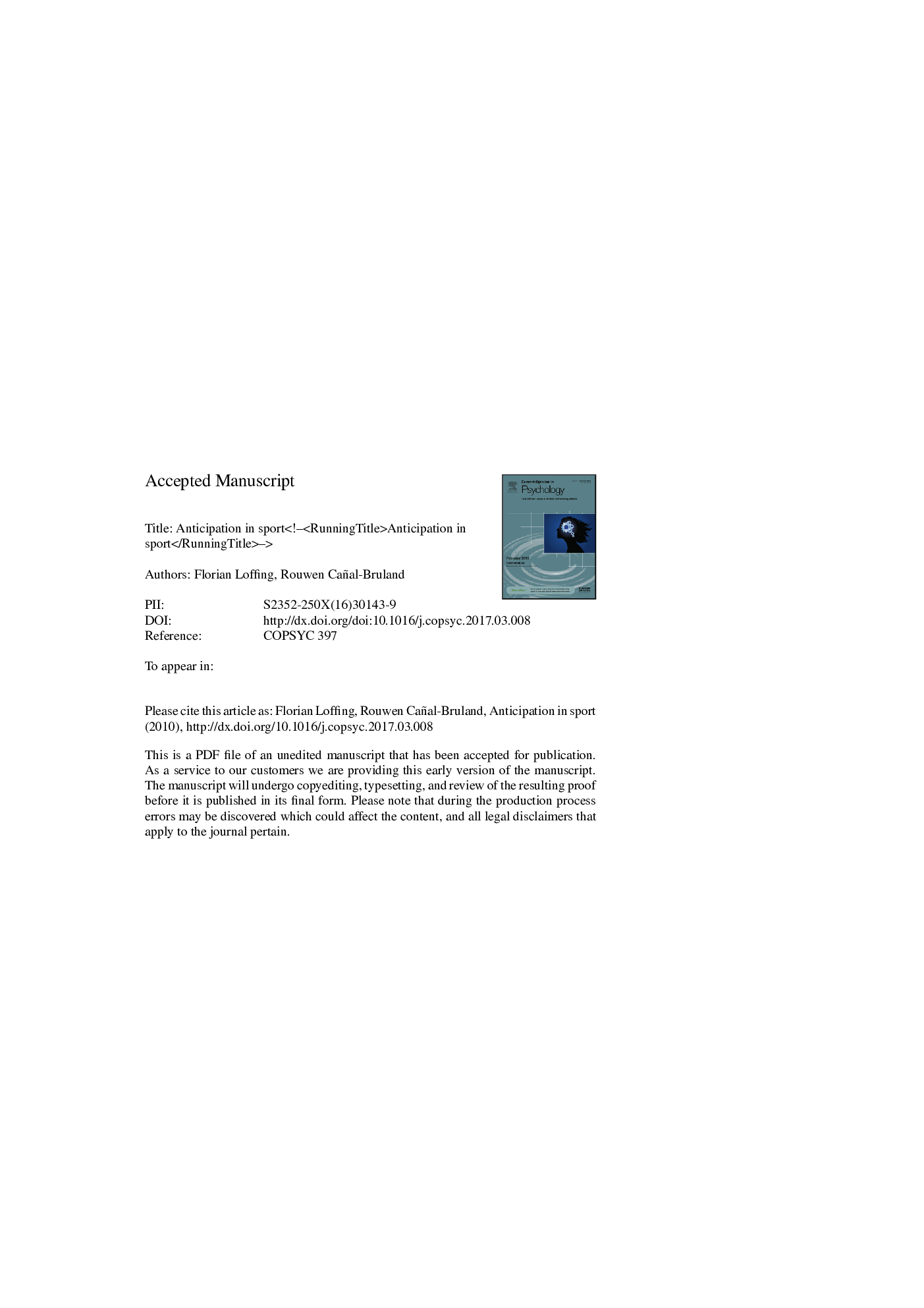| Article ID | Journal | Published Year | Pages | File Type |
|---|---|---|---|---|
| 5033470 | Current Opinion in Psychology | 2017 | 19 Pages |
Abstract
Anticipation has become an increasingly important research area within sport psychology since its infancy in the late 1970s. Early work has increased our fundamental understanding of skilled anticipation in sports and how this skill is developed. With increasing theoretical and practical insights and concurrent technological advancements, researchers are now able to tackle more detailed questions with sophisticated methods. Despite this welcomed progress, some fundamental questions and challenges remain to be addressed, including the (relative) contributions of visual and motor experience to anticipation, intraindividual and interindividual variation in gaze behaviour, and the impact of non-kinematic (contextual or situational) information on performance and its interaction with advanced kinematic cues during the planning and execution of (re)actions in sport. The aim of this opinion paper is to shortly sketch the state of the art, and then to discuss recent work that has started to systematically address open challenges thereby inspiring promising future routes for research on anticipation and its application in practice.
Related Topics
Social Sciences and Humanities
Psychology
Applied Psychology
Authors
Florian Loffing, Rouwen Cañal-Bruland,
